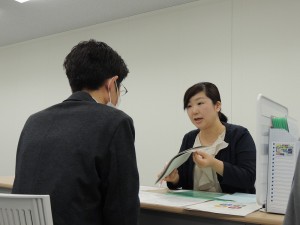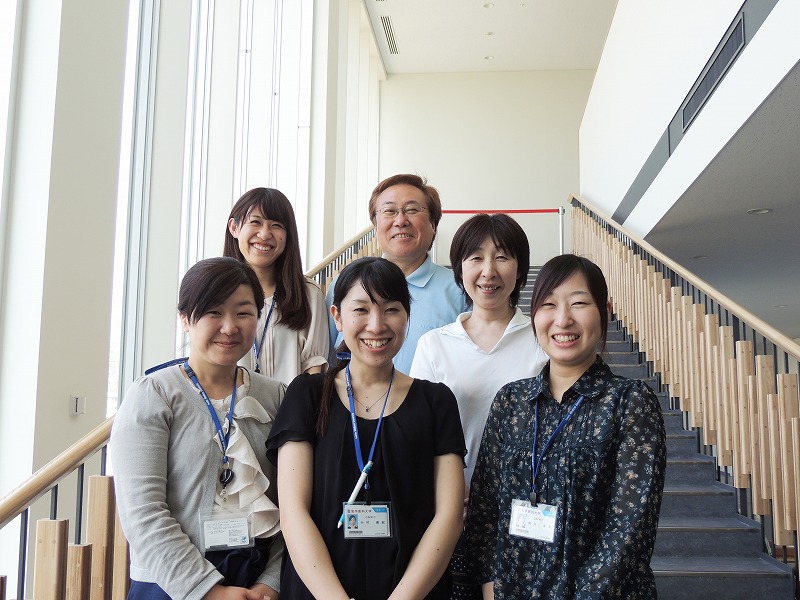Tohoku Medical Megabank project intends to provide medical support and implement next-generation personalized medicine in the areas stricken by the Great East Japan Earthquake and Tsunami of March 2011. Iwate Tohoku Medical Megabank also provides several programs of career advancement (becoming a specialist, earning a degree, etc.) for physicians who are interested in restoring medical services in the affected areas or conducting cutting-edge research. These physicians work contribute to community medicine and community-based clinical research in the affected areas through involvement in genomic/epigenetic cohort studies.
Medical Megabank Fellows
A full-time Medical Megabank Fellow is appointed in a hub hospital on the Iwate coast (Kuji Prefectural Hospital, Miyako Hospital, Kamaishi Hospital, and Ofunato Hospital) for 6 months or longer. The Medical Megabank Fellow then serves as an appointed assistant professor while conducting genomic/epigenetic cohort studies or related research of Iwate Tohoku Medical Megabank Organization at Iwate Medical University. The research term is twice as long as the Fellow term worked at the hub hospital. While working in the hospital, the Medical Megabank Fellow will also be involved in cohort studies in local Iwate Medical Megabank satellite offices or at annual check-ups.
Graduate-level courses
The following master’s and doctoral courses are offered in conjunction with Iwate Medical University.
| Course title | Main areas covered |
|
Genomic cohort studies and bioinformatics |
Students will learn the basics of next-generation large-scale cohort studies involving genomic information. Students will also learn techniques for analysis of biological information, i.e.the genome, methylome, and transcriptome, and the basics of bioinformatics. |
|
Medical genomics |
Over the past few years, bioinformatics techniques have become essential to analyzing genomic information and other -omics information in medical research. However, equipment such as next-generation sequencersyields hundreds of millions of lines orseveral TBs of data, eclipsing what a personal computer with a Windows or Mac OScan handle. In this course, students will learn the basics of bioinformatics by handling actual genomic information to see how vast amounts of data are used in medical research. Students will also conduct genomic research that takes environmental factorsand genetic predisposition into account. |
Genomic Medical Research Coordinators (GMRCs)
 GMRCs are specialists with expertise in genetics, genomics, and research support. A large number of research participants are essential for genomic research. GMRCs serve as a bridge between research participants and investigators. Iwate Tohoku Medical Megabank-certified GMRCs hold medical qualifications (public health nurses, nurses, laboratory technicians, etc.) and can therefore properly and thoroughly explain the Medical Megabank Project. Moreover, GMRCs routinely provide health support. If you have questions about the Project, your health, or other matters, please feel free to ask our GMRCs.
GMRCs are specialists with expertise in genetics, genomics, and research support. A large number of research participants are essential for genomic research. GMRCs serve as a bridge between research participants and investigators. Iwate Tohoku Medical Megabank-certified GMRCs hold medical qualifications (public health nurses, nurses, laboratory technicians, etc.) and can therefore properly and thoroughly explain the Medical Megabank Project. Moreover, GMRCs routinely provide health support. If you have questions about the Project, your health, or other matters, please feel free to ask our GMRCs.

Tohoku Medical Megabank project intends to provide medical support and implement next-generation personalized medicine in the areas stricken by the Great East Japan Earthquake and Tsunami of March 2011. Iwate Tohoku Medical Megabank also provides several programs of career advancement (becoming a specialist, earning a degree, etc.) for physicians who are interested in restoring medical services in the affected areas or conducting cutting-edge research. These physicians work contribute to community medicine and community-based clinical research in the affected areas through involvement in genomic/epigenetic cohort studies.










